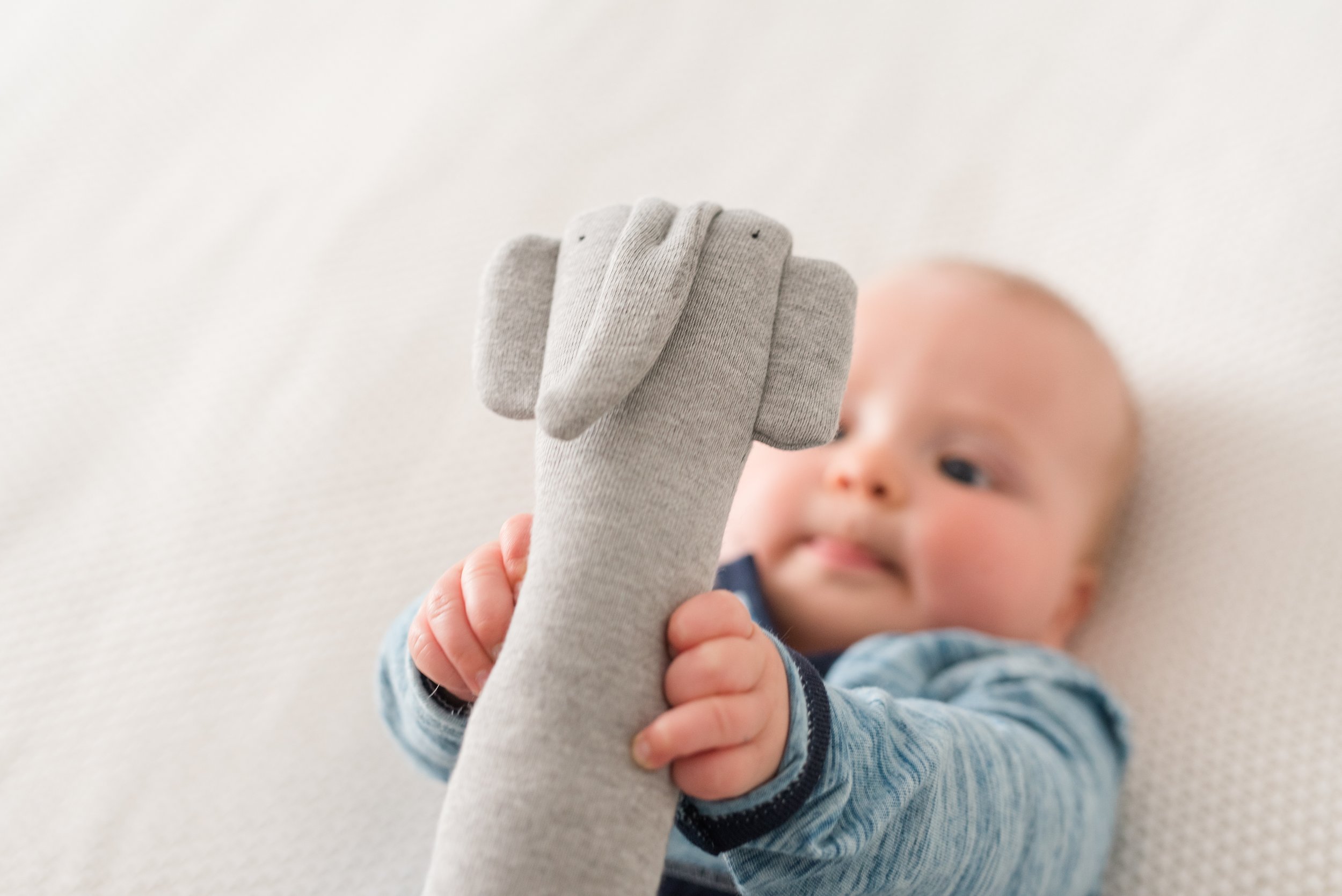Baby Falls Asleep Easily at Bedtime, but Fights with Naps!
It can be a real trip when your baby goes down easily at bedtime but cannot do the same for naps. There’s a few reasons that this could be happening! But first things first, let’s talk about sleep latency-this is the amount of time it takes for your baby to fall asleep. The average amount of time for babies aged 0-2 years old is 5-20 minutes. A little over that amount here and there typically isn’t anything to worry about., however, if your baby is consistently taking longer than average to fall asleep you may want to do some digging to find out why.
Why Baby Falls asleep Easily at bedtime but not naps:
During the day babies don’t have the same benefit of the nighttime sleep hormones, and the drive to sleep during the day is low. However, it is still so important for babies to be offered naps at regular, age appropriate intervals to prevent them from becoming overtired. Sleep pressure builds during awake time, and is released during naps. Without that release the baby will experience an increase in cortisol, “a second wind”, making it very hard for them to relax enough to fall asleep. It’s all a balance of finding their sweet spot for timing. You are allowing their sleep pressure tank to fill up just enough to allow them to fall asleep for their nap, and be able to stay asleep for a good amount of time. Research has shown that babies who regularly take naps are able to function better throughout the day socially, emotionally, and mentally.
The Puzzle Pieces of Figuring out Baby Sleep
There are four puzzle pieces that I always refer back to when sleep isn’t going as well as I’d like. This remains true for when night sleep is going well, but naps are not.
Puzzle pieces:
Environment-this is probably the easiest thing to troubleshoot and check off your list of possible reasons for difficulty sleeping. It may be overlooked as a factor, because if it’s good enough at bedtime it should be good enough for naps right? Not necessarily. The sun could be peeking through the curtains, or it could be slightly warmer due to direct sunlight on that side of the house. If you have other kids in the home the white noise may not be loud enough or positioned in a way to act as a sound buffer to block out the extra sounds!
Is their nap environment cool? (68-72 degrees Farenheit, 20-22 degrees Celsius)
SO dark that you can’t see your hand in front of your face?
White noise ~60 dB?
Consistent, age appropriate schedule to build sleep pressure. Double check your timing for naps, because both under AND overtiredness could be a reason that your baby is struggling to fall asleep.
Establish a naptime routine to create positive sleep associations, and signal that sleep is coming. Sometimes it can be easy to overlook the naptime routine. Especially if you have other kids in the home to tend to; it seems like time flies and the naptime sneaks up so fast! But if your baby is struggling to transition from play to sleep you may want to prioritize the naptime routine to see if it helps. You could even build some winding down time into the routine to help calm your little one’s nervous system.
Ensure your baby is going into their sleep space calm and awake. Feedings can sometimes happen too close to naptime, and if your baby is taking a little snooze during the feed it could be zapping their sleep drive for the nap. Move the feeding back so that it is ending at least 20-30 minutes before the baby is due to go down in their sleep space. As I mentioned earlier, we don’t have the nighttime sleep hormones on our side for day sleep, so even a couple minutes of dozing could derail your baby’s nap!
Your baby is capable of taking good naps! You may just take some extra troubleshooting to get there. I don’t love logging sleep for *my own* kids, (feels so tedious), however it is such a helpful tool to pinpoint patterns. Even just a couple of weeks of logging can provide so much useful information to help you adjust their wake windows/schedule.
Other useful links:
Ready for more support? Check out the Raising Happy Sleepers membership and start troubleshooting today.


